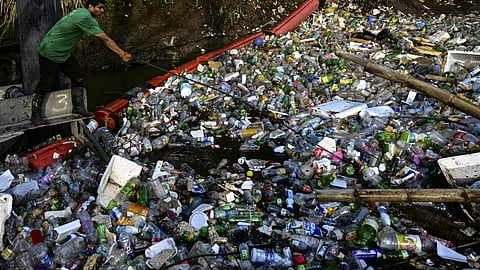
- NEWS
- the EDIT
- COMMENTARY
- BUSINESS
- LIFE
- SHOW
- ACTION
- GLOBAL GOALS
- SNAPS
- DYARYO TIRADA
- MORE

BANGKOK, Thailand (AFP) — Plastic pollution litters our seas, our air and even our bodies, but negotiators face an uphill battle next week to agree on the world’s first treaty aimed at ending the problem.
Countries will have a week in South Korea’s Busan from Monday to round off two years of negotiations.
They remain deeply divided on whether the deal should limit plastic production and certain chemicals, and even if the treaty should be adopted by majority vote or consensus.
The talks are a “moment of truth,” UN Environment Program chief Inger Andersen warned this month.
“Busan can and must mark the end of the negotiations,” she insisted, in a nod to growing speculation that the process could be extended.
She acknowledged that serious differences remain, urging “more convergence” on the most difficult areas.
“Everyone wants an end to plastic pollution,” she said.
“Now it is up to member states to deliver.”
There is little dispute about the scale of the problem.
In 2019, the world produced around 460 million tons of plastic, a figure that has doubled since 2000, according to the Organization for Economic Cooperation and Development.
Plastic production is expected to triple by 2060.
More than 90 percent of plastic is not recycled, with over 20 million tons leaking into the environment, often after just a few minutes of use.
